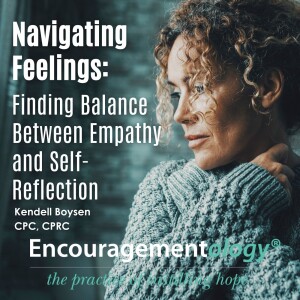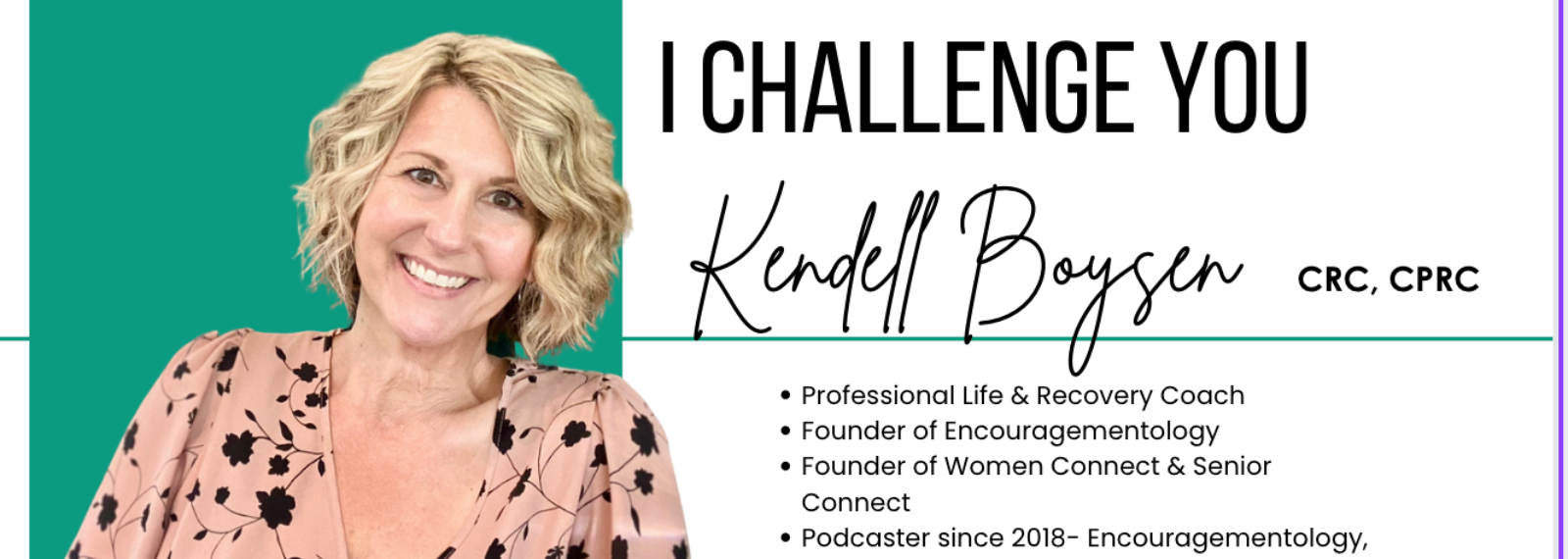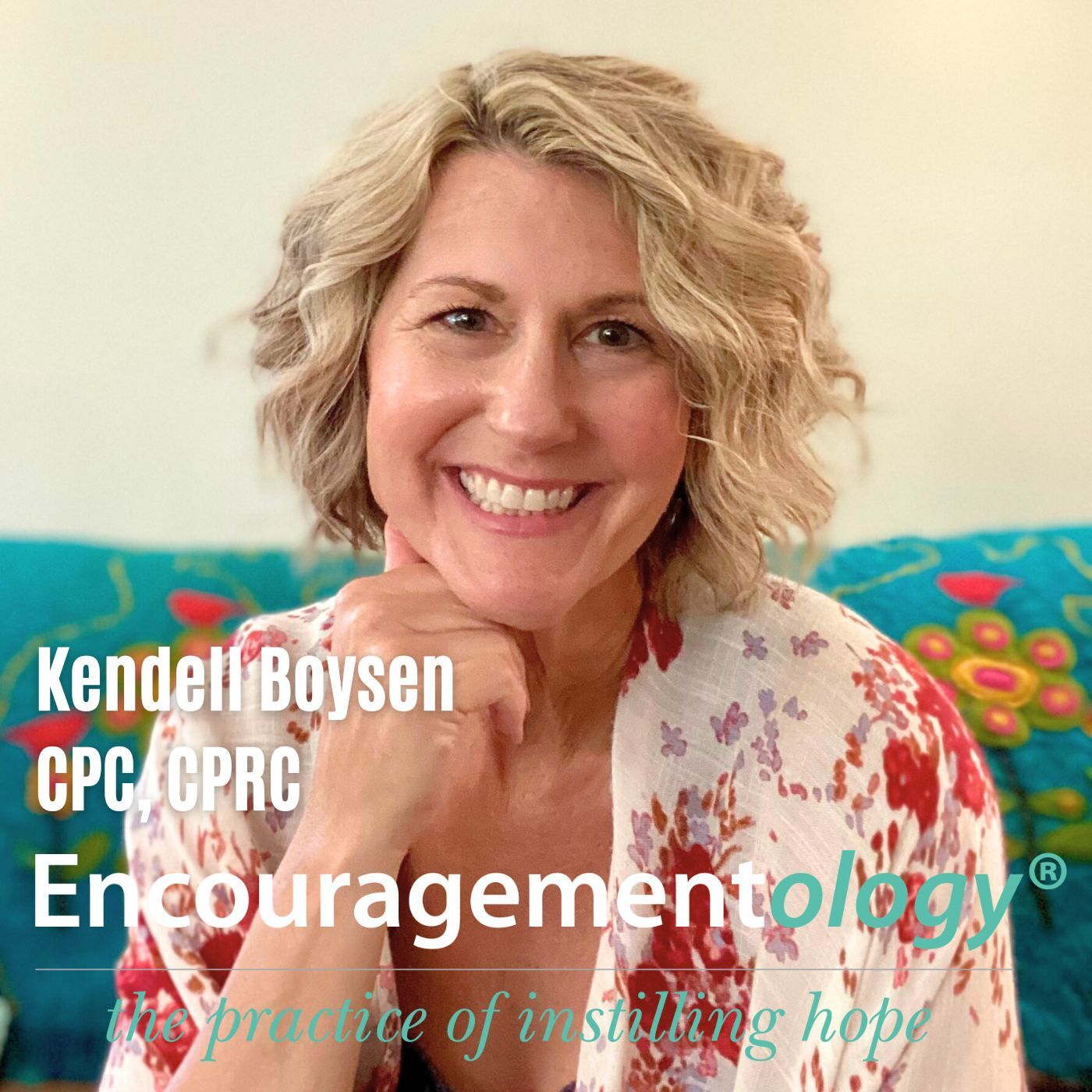Episodes

Tuesday Nov 05, 2024
Navigating Feelings: Finding Balance Between Empathy and Self-Reflection
Tuesday Nov 05, 2024
Tuesday Nov 05, 2024
SHOW NOTES:
On this show…we will be navigating feelings as we try to find a balance between empathy and self-reflection. How are you feeling? How do those feelings impact another person’s feelings? Can you feel what another person is feeling? Are you as confused as I am by this line of questioning? Well, today, we’re diving into the world of feelings—yes, that deep, squishy part of being human! We live in a culture that champions the importance of respecting feelings, which is awesome…but sometimes we can get so wrapped up in our feelings that we forget to take a peek at the other side of the coin. What happens when we’re hyper-focused on our own emotions? Could we be missing out on understanding someone else’s? Let’s explore the fine art of balancing self-reflection with empathy, of making room for our own feelings and those of the people around us. It’s all about connecting, growing, and creating more ‘aha’ moments in our relationships—with a little bit of humor, honesty, and a lot of heart along the way!
When I was growing up, the question, ‘How do you feel?’ had a whole different vibe. It was usually about the basics—are you hot, cold, tired, or maybe just a little hungry? When it came to health, the answer was usually straightforward: sick or not. If you were really under the weather, maybe you’d get a day at home or a trip to the nurse’s office. Simple. But today, that question has become a lot more nuanced. Now, asking ‘How do you feel?’ can open up a world of responses, as unique and layered as each person who answers it.
Don’t get me wrong, a focus on exploring more about feelings has helped normalize mental health discussions, reduced stigma, and empowered people to speak openly about their struggles. It has illuminated the need for self-awareness, stress management, and setting boundaries. However, focusing too much on personal feelings can sometimes limit our ability to connect empathetically with others. It can even contribute to misunderstandings in relationships if one person is more focused on expressing their own feelings versus listening to understand someone else’s emotional struggles.
Ever heard of emotional myopia – when we see only our own emotional perspective and may inadvertently neglect the feelings of others?
Martha Beck starts this discussion with Seeing Your Emotional Blind Spots found on her blog
Recognizing when someone is playing on our emotions to push their own agenda can be tricky, but there are a few red flags that can help us stay aware:
- Intense Emotional Appeal
- If someone is leaning heavily into emotions—guilt, pity, anger, or fear—without much substance or reason behind it, it’s a sign they might be trying to sway you emotionally rather than engaging in a balanced conversation. Notice if they’re frequently amplifying emotional language or using words designed to make you feel extreme sympathy or urgency.
- Lack of Listening and Empathy
- People pushing an agenda will often avoid giving space to your feelings, opinions, or questions. If they dominate the conversation, rarely let you speak, or dismiss your perspective when you do, it’s a red flag. Genuine conversations include active listening; if it feels one-sided, trust that instinct.
- Deflection and Manipulation of Responsibility
- When you try to express your own emotions or viewpoints, do they quickly shift the topic back to their own concerns or play down your feelings? Manipulators often turn things around to make you feel responsible for their emotions, a tactic to keep the focus on themselves and their goals.
- Inconsistent Narratives or Exaggerations
- Listen for inconsistencies or exaggerated claims that don’t add up. Manipulators may bend the truth or overemphasize details to paint themselves in a certain light or to steer you toward a specific reaction. If something seems “off” or overly dramatic, trust your gut.
- Pressure to Make Quick Decisions
- People pushing an agenda often create a sense of urgency, pressuring you to act or decide quickly. They know that when we’re rushed, we’re less likely to question or analyze their motives. Pausing and asking for time to think it over is often the best way to get clarity.
- Using Past Events as Emotional Leverage
- Manipulators might bring up past events or your own vulnerabilities to make you feel indebted to them or guilty. They might even use their past generosity or sacrifices as leverage, nudging you to go along with their wishes. This type of guilt-tripping is a clear sign they’re trying to steer your emotions to benefit their narrative.
- Trust Your Gut
- Sometimes, the simplest way to recognize manipulation is by trusting your own feelings. If you feel drained, confused, or somehow “off” after talking with them, this might be your intuition signaling that their intentions aren’t fully in your best interest.
By keeping an eye out for these signs, you can protect your emotional space and engage with people on your own terms, setting boundaries and staying true to your values.
CHALLENGE: Look beyond your own feelings and consider the bigger picture—what are others experiencing, and how can you make space for that? By balancing self-reflection with empathy, you can create deeper, more meaningful connections that benefit everyone involved.
I Know YOU Can Do It!


No comments yet. Be the first to say something!